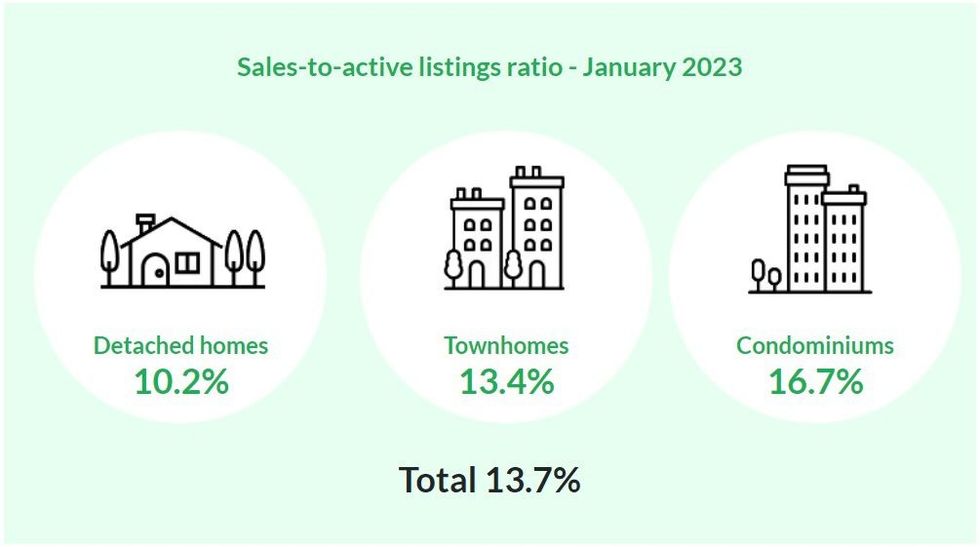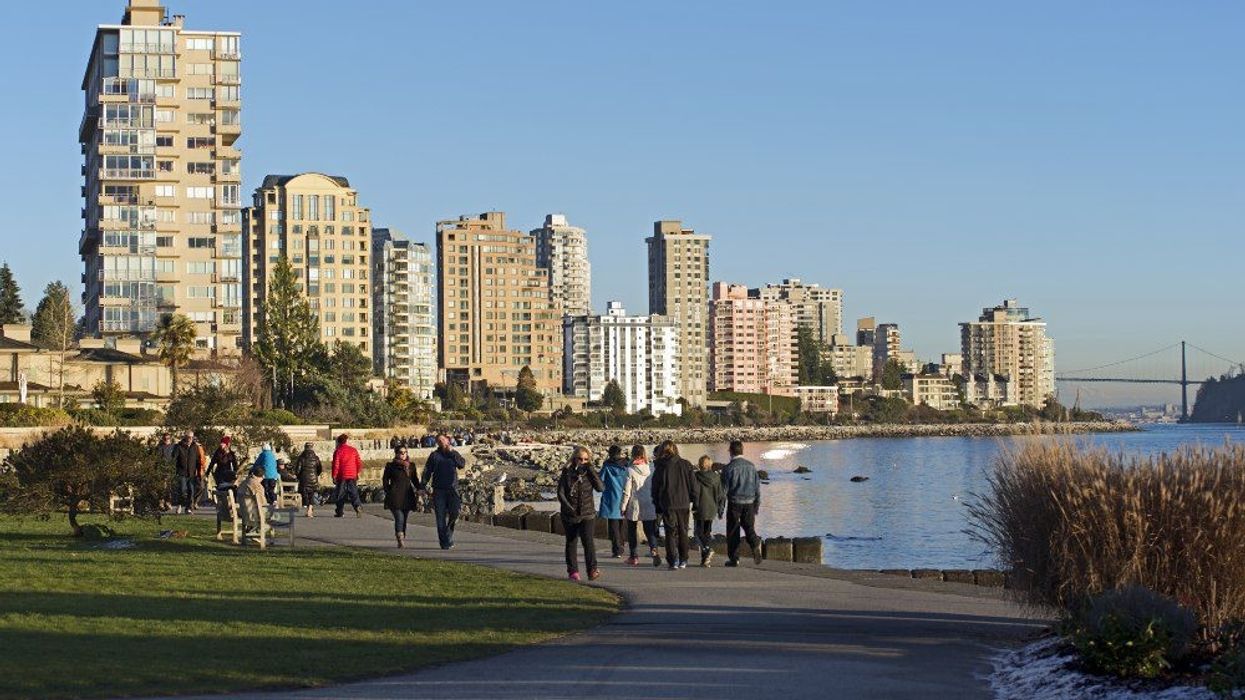The Greater Vancouver real estate market, like most others around the country, has historically followed this trend: home sales take a dip in the winter, rise in the spring, cool off a bit in the summer, find life again in the fall, and dip once more in the winter.
Taking that seasonal context into account, however, market activity in the Greater Vancouver region is still off to a slower than usual start, according to January statistics published by the Real Estate Board of Greater Vancouver (REBGV) on Thursday.
The Greater Vancouver region registered a grand total of 1,022 home sales in January, which amounts to a 21.1% decrease compared to the 1,295 sold in December and a 55.3% decrease compared to the 2,285 sold in January 2022. Looking at it within an even larger timeframe, January's total was 42.9% below the 10-year sales average for January, according to REBGV.
Of course, rising interest and mortgage rates have, and continue to be, a significant factor, and REBGV said on Thursday that they were expecting the number in January to be one of the lowest in recent-history because of that.
Looking at the amount of listings, January saw 3,297 new listings in Metro Vancouver -- a 20.9% decrease compared to the 4,170 listed in January 2022, but a staggering 173.4% increase compared to the 1,206 listed in December.
The total amount of active listings in the Greater Vancouver region is now at 7,478, which is a 1.3% increase compared to December and a 32.1% increase compared to this time last year.
The Market Lean
What does this mean and where is the market now?
A good quantitative indicator of whether the market is favoring buyers or sellers, or neither, can be determined via the sales-to-active listings ratio, where a ratio below 12% is viewed as favoring buyers, above 20% as favoring sellers, and anything in between a sign of a balanced market.
With 1,022 sales in January and 7,478 active listings, the sales-to-active-listings ratio is 13.7%, indicating balance, with perhaps movement towards a buyers' market after being at 17.5% in December.
Broken down by property types, the ratio is at 10.2% for single-detached homes, 13.4% for townhouses, and 16.7% for condominiums. In December, those numbers were at 12.3%, 19.5%, and 21.7%, respectively, indicating that the movement towards favoring buyers is happening across all property types.

A second quantitative indicator of the market lean is the sales-to-new-listings ratio, where a ratio below 40% is considered a buyers' market, 55% or higher as a sellers' market, and a ratio in between viewed as a balanced market.
With 1,022 overall home sales and 3,297 new listings in Greater Vancouver this January, the sales-to-new-listings ratio is 30.9%, confirming the tilt towards buyers.
READ: Metro Vancouver Home Sales May Dip In 2023, But Prices Will Still Rise
Prices Are Still Slipping, But Only Slightly
The composite residential benchmark price in Greater Vancouver is now at $1,111,400, a 0.4% decrease compared to December 2022 and a 6.6% decrease compared to January 2022.
By property type, the benchmark price is now $1,801,300 for single-detached homes, $1,020,400 for townhouses, and $720,700 for condominiums, with all three representing a decrease when compared to this time last year, but less so when compared to December.
"We know the peak for prices in our market occurred last spring," said REBGV Director of Economics and Analytics Andrew Lis. "It's important to understand that year-over-year calculations are backward-looking. These price declines already happened, and what we are seeing today is that prices may have found a footing, even if it's an awkward one sandwiched between low inventory and higher borrowing costs."
Looking at the submarkets, prices remain the highest in West Vancouver, where the composite benchmark price is now at $2,538,200, which includes a decline of 6.8% over the past year. On the other end of the price spectrum is New Westminster, where the composite benchmark price is just $782,300.
In a 2023 forecast published earlier this week, REBGV said that it was projecting home sales this year to be just slightly below what we saw in 2022, while prices are likely to rise as a result of demand remaining very strong. All of this, of course, is pending an economic recession.





















